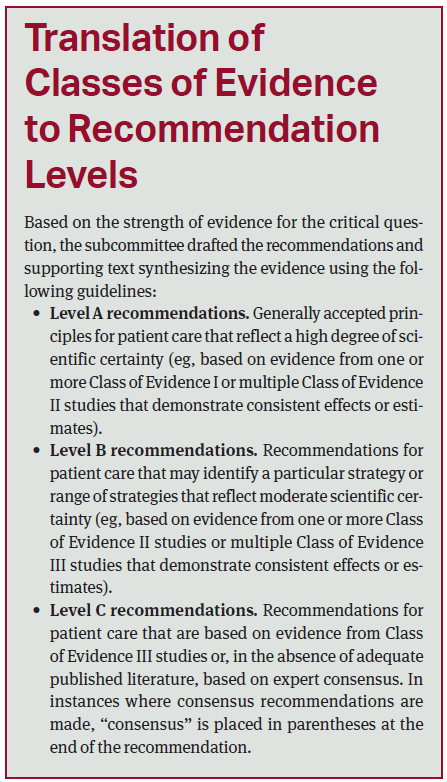
On October 6, 2023, the ACEP Board of Directors approved a clinical policy developed by the ACEP Clinical Policies Committee on the evaluation and management of adult out-of-hospital or emergency department (ED) patients presenting with severe agitation. This clinical policy has been published in the January 2024 issue of the Annals of Emergency Medicine, and can be found on ACEP’s website. It will also be included in the ECRI Guidelines Trust, upon its acceptance.
Explore This Issue
ACEP Now: Vol 43 – No 02 – February 2024Patients with severe agitation are a consistent, high-risk presentation to the ED. Patients who present with severe agitation often have a critical, life-threatening medical condition that requires urgent treatment. Such patients typically suffer from an acute medical emergency, acute intoxication with sympathomimetics or alcohol, or a psychiatric problem. Verbal de-escalation should be considered as first-line management. Following attempts at verbal de-escalation, oral or sublingual medications should be considered in patients where it is safe to administer them. This clinical policy is intended for the initial treatment of undifferentiated agitation, in which the underlying etiology is unknown, and aims to summarize the current body of literature surrounding the safety and efficacy of parenteral agents used for treatment of severe agitation in the ED.
The critical question was based on feedback from ACEP membership. A systematic review of the evidence was conducted, and the committee made recommendations (Level A, B, or C) based on the strength of evidence available. This clinical policy underwent internal and external review expert review and was available for review by ACEP membership during an open comment period. Responses received were used to refine and enhance the final policy.
Critical Question
Is there a superior parenteral medication or combination of medications for the acute management of adult out-of-hospital or emergency department patients with severe agitation?
Patient Management Recommendations
- Level A recommendations. None specified.
- Level B recommendations. For more rapid and efficacious treatment of severe agitation in the emergency department, use a combination of droperidol and midazolam or an atypical antipsychotic in combination with midazolam. If a single agent must be administered, use droperidol or an atypical antipsychotic due to the adverse effect profile of midazolam alone. For efficacious treatment of severe agitation in the emergency department, use the above agents as described or haloperidol alone or in combination with lorazepam.
- Level C recommendations. In situations where safety of the patient, bystanders, or staff is a concern, consider ketamine (intravenous or intramuscular) to rapidly treat severe agitation in the ED (consensus recommendation).
No recommendations for or against the use of specific agents in the out-of-hospital setting can be made at this time (Consensus recommendation).
No recommendation for or against the use of specific agents in patients above the age of 65 years can be made at this time (Consensus recommendation).
 Dr. Thiessen is an attending physician in the emergency department at Denver Health Medical Center, and an associate professor in the department of emergency medicine at the University of Colorado School of Medicine.
Dr. Thiessen is an attending physician in the emergency department at Denver Health Medical Center, and an associate professor in the department of emergency medicine at the University of Colorado School of Medicine.
Pages: 1 2 | Multi-Page




No Responses to “ACEP’s New Clinical Policy on Severe Agitation”